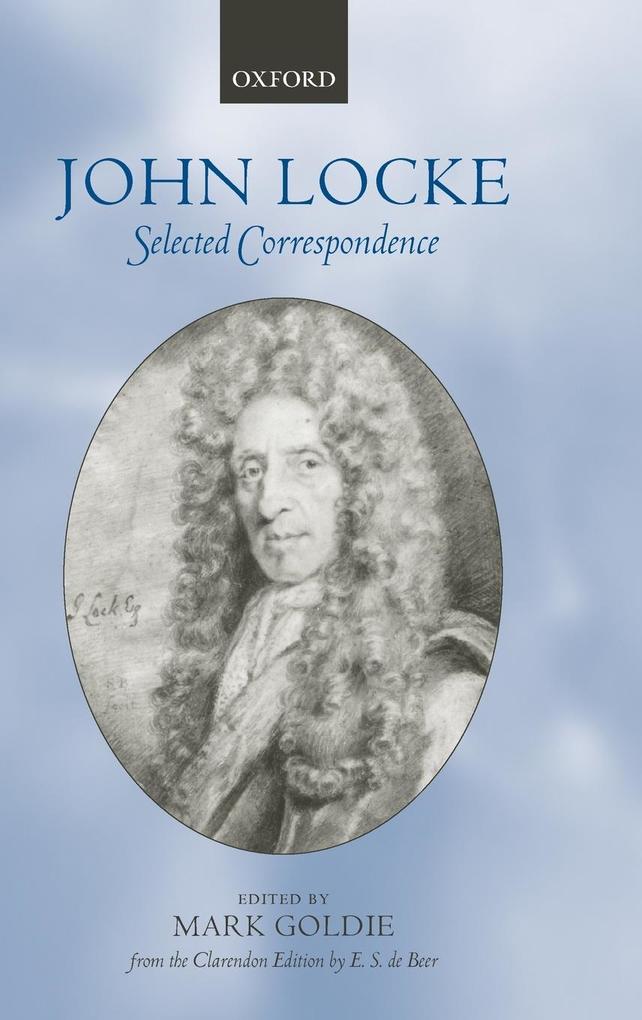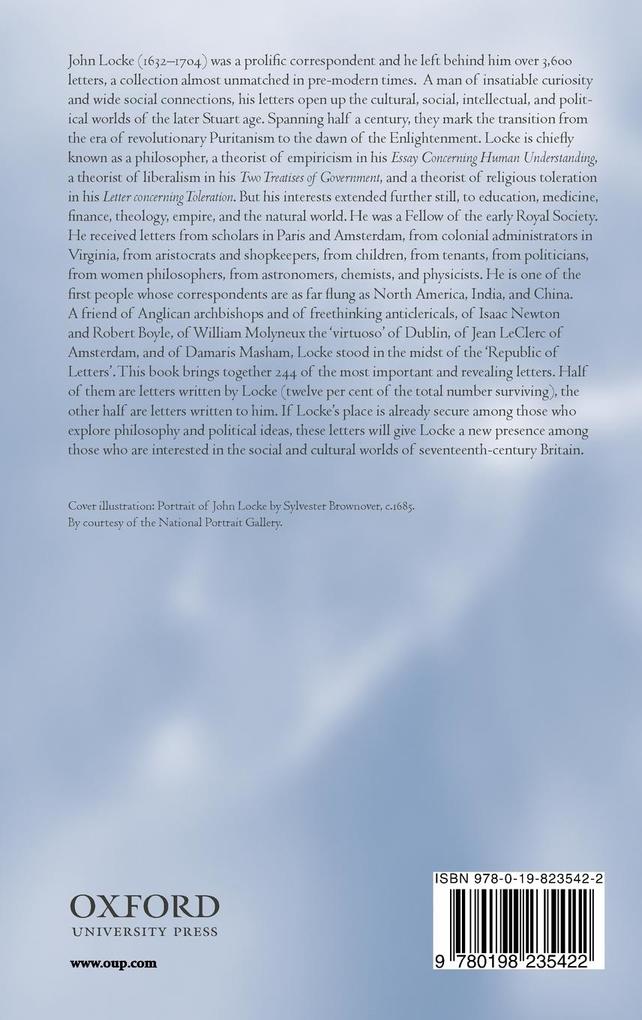Bücher versandkostenfrei*100 Tage RückgaberechtAbholung in der Wunschfiliale
NEU: Das Hugendubel Hörbuch Abo - jederzeit, überall, für nur 7,95 € monatlich!
Jetzt entdecken
mehr erfahren
Zustellung: Do, 18.09. - Di, 23.09.
Versand in 2 Wochen
VersandkostenfreiBestellen & in Filiale abholen:
John Locke (1632-1704) is perhaps the greatest philosopher in the English language. A political activist in a revolutionary age, Locke's prolific correspondence opens up the cultural, social, intellectual, and political worlds of the later Stuart era. Spanning half a century, the letters trace the transition from Puritanism to the Enlightenment. A man of insatiable curiosity, Locke's letters encompass science (his correspondents include Isaac Newton and Robert Boyle), education, travel, religion, and the birth of the British empire.
Inhaltsverzeichnis
- Introduction
- Note on the text
- Chronology
- Letters
- 2: Restoration Oxford and the Embassy to Cleves, 1660-1666
- 3: Lord Ashley's Servant and the 'New World', 1667-1675
- 4: France, 1675-1679
- 5: Popery and Arbitrary Power, 1679-1683
- 6: Exile in Holland, 1683-1688
- 7: The Glorious Revolution, 1688-1689
- 8: Government and the Law of Nature, 1690-1692
- 9: Philosophy and Correction, 1692-1694
- 10: Civility and Superstition, 1694-1695
- 11: Coinage and Commerce, 1695-1696
- 12: Reasonable Christianity, 1696-1697
- 13: Divinity and Ireland, 1697-1698
- 14: Manners and Americans, 1699-1701
- 15: Politics Revived, 1701-1703
- 16: Recessional, 1703-1704
- Biographical register of correspondents
- Further reading
- Checklist of letters selected
- Index
Produktdetails
Erscheinungsdatum
27. Februar 2003
Sprache
englisch
Seitenanzahl
416
Autor/Autorin
John L Locke
Herausgegeben von
Mark Goldie
Verlag/Hersteller
Produktart
gebunden
Gewicht
724 g
Größe (L/B/H)
241/164/32 mm
ISBN
9780198235422
Pressestimmen
This handsomely produced volume is well worth its while ... The result of Goldie's choice of letters and of the generally excellent editorial material which surrounds them is a book not only in which one might browse with pleasure but also which might be read systematically. Locke Studies Mark Goldie has now performed a vital task for all serious students of Locke: he has given us a selection of the most important of these letters in a single volume that is light in weight and elegantly annotated. The letters collected here-both to and from Locke-can be read from start to finish, telling the story of a man who was to find himself both at the centre of the 'commonwealth of learning' and of the struggle against political and religious tyranny in the British Isles. James Hill, Acta Comeniana Each of the sixteen temporally separate groups of letters is prefaced with a couple of pages of useful biography. Also there is an excellent overall thirty-page introduction. Locke Studies Mark Goldie's edition of Selected Correspondence is a timely attempt to unlock this cabinet of secrets for a much larger audience ... His knowledge of Locke and his historical setting is exemplary ... He faces the formidable challenge with tact and composure ... fascinating to read, and often illuminating in detail ... It fully deserves to carry the pleasures and insights of the correspondence to a much wider circle of readers. John Dunn, Times Literary Supplement
Bewertungen
0 Bewertungen
Es wurden noch keine Bewertungen abgegeben. Schreiben Sie die erste Bewertung zu "John Locke" und helfen Sie damit anderen bei der Kaufentscheidung.










